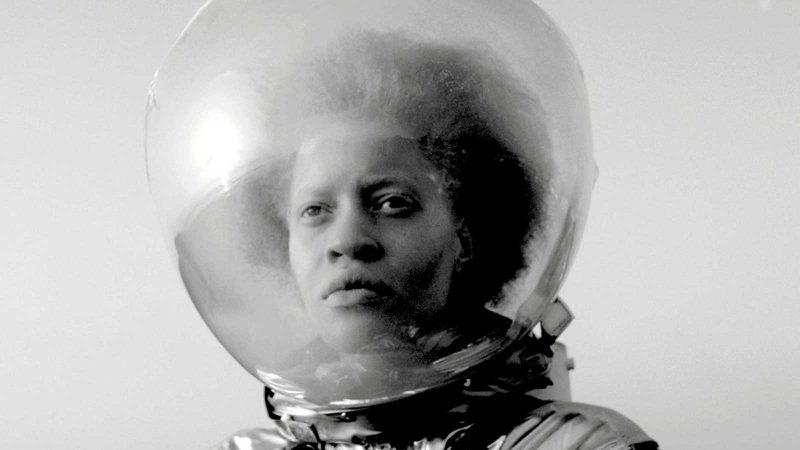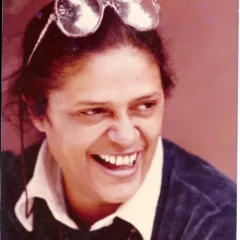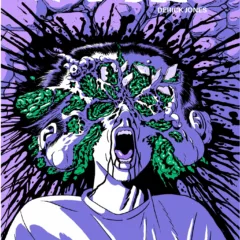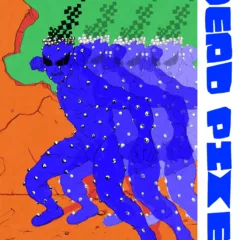
Dystopian worlds, strange phenomena bordering on the fantastic, shady tyrannical governments in an imposing a world of contagions transforming our human bio-vessels, causing us to distance both physically and sociologically– these are the days we’re living in. The moment we exist in borders on science fiction, on the surreal. It’s also true that there feels like a massive paradigm shift, where many of us are experiencing a consciousness change in real time, erupting out of a long slumber and realizing that Black lives do indeed matter, who knows how long it will take for us to realize that Black lives– and music, and art, and media representation– should also be valued. As well, despite Covid-19 being set to increase its number of cases across the United States, businesses are desperate to open and governments are scrambling to “save the economy” and potentially put us at risk of a deadly virus. It has to be reiterated that we are living in surreal times indeed.
We are at the precipice of a kind of global change that demands we go out and let our voices be heard in the streets, but also a change that, due to coronavirus-, asks that we stay the hell home. We’ll be firing up Netflix as often as we’ll be firing off lists of demands for a better society into megaphones– the revolution, as it were, needs its comforts, its joys, too. Particularly, the Black movement has always been cloaked in artistry. Many Black creatives view art through a trans-formative lens, as a tool of cognizant expression and a model for a world that can be possible on a large scale. From the dramatic, grand forms of multi-media artist Rodney McMillian to the radical proto-womanist abstract art of Betty Blayton, this kind of speculative dreaming is grounded in Black realities, but it’s still speculative, still existential and fantastical.
There’s a revolutionary power, a practical power, in telling stories through a strange lens. As Black people, our lives are already strange– we’ve survived hundreds of years of trauma:– middle passage, slavery, being stripped of our cultural roots up and through disenfranchisement and share cropping and jim crow/apartheid, to the modern prison industrial complex and the weaponizing of police by citizens to stop our forward momentum. Our survival tactics and tools are the stuff of sci-fi machinations; our survival itself a dark dream, a waking nightmare so Kafkaesque, so Ellisonian in fact, that it’s a wonder shows like Black Mirror aren’t just exclusively about the Black experience. Certainly, tales of the marginalize exist for wider audiences through metaphor and hyperbole– franchises like the X-Men, TV shows like Alien Nation, films like District 9, etc., but where are we really? Where are our faces?
That Black people find joy in the mundane, ever, is a testament to this aforementioned survival. But we do make art that is deliberately surrealist and this is essential praxis. Black stories live and breathe on the page and on the screen, and when these stories are draped in washy lens flares, portal-induced scene dissolves, and both dreamy and nightmarish visual poetry, our stories become vivid, inescapable and lived in. So, check out these examples of Afro-surrealist (and adjacent) films, documentaries, and TV shows you can stream right now– you’re not going anywhere, anyway, and the time for imagining new worlds, as always, is now.
The Burial of Kojo
From Ghanaian director Blitz Bazawule, Burial of Kojo has distribution from Netflix and Ava Duvernay’s producer stamp of approval. It’s a dreamy, slow burn of a film that blurs the lines between the fantastic and real, where a young girl fights to save her father through the rough streets of an African city (fighting off local gangsters as well as economic exploitation from China) and the underworld/afterlife.
Sorry to Bother You
This film exploded on the scene in 2018 as writer/director Boots Riley’s (of the political rap group “The Coup”) first film, and it’s a doozy. Totally unhinged, Riley’s lens captures a chaotic worldview of Black life in Oakland, CA, where a Black man (Lakeith Stanfield) strives to better himself by using his “white voice” to get ahead in the telemarketing world. Madness ensues in this nightmarish, Terry Gilliam-esque black comedy
The work of Ephraim Asili
Asili’s work is visual collage, blending jazz and downtempo music, poetry, and footage captured on vintage cameras to explore the unseen matter of the Black experience. Shot in Africa, the Caribbean and the United States, the work is expansive and lucid, eschewing the narrative constraints of modern documentary for a more lived-in interpretation.
Muthi Reed’s melanatedvioletfluxus. What a Black heart remembers
Surreal, sobering work of protest, as insurrectionist as it is ecstatic. Reed layers sounds and songs, for an affected “found footage” soundscape that pairs well with Reed’s own intimate camera work to highlight the eerily ethereal aspects of Black life. An elder dancing to a distorted song as voices shout in the background becomes a ghost-like dervish on Reed’s screen.
The work of Akosua Adoma Owusu
A self-described cinematic trickster, Owusu uses intensely dark satire and unconventional narrative pacing to elicit the subconscious. Intermittent Delight, for instance, is an explosion of ideas that plays as an updated Un Chien Andalou and hyper focuses on the making of African fabrics as a comment on exploitation.
Afronauts
An absolutely stunning, sci-fi and Afrofuturist re-telling of Zambia’s 1960s attempt to enter the space race. This is essential viewing for any Afrofuturist, with its gorgeous Kubrick-esque camera work, charged performances, and elegant set design. Written and directed by Frances Bodomo, it’s an exploration on themes of “othering” that turns into possibly the most empowering film on this list.
Terrance Nance’s 18 Black Girls Ages 1-18 Who Have Arrived at the Singularity – Performed in Bedstuy, Brooklyn
Other works by Terence Nance exist online, among them are the first episode of his wildly inventive, if not somewhat problematic (for depicting real violence against Black people and venturing into trauma) HBO sketch..um..show? Presentation? Insurrectionist video-mashup zine? “Random Acts of Flyness” or the wildly interpretive documentary based on the sci-fi RnB and electric soul-punk of his brother Nelson, “Nowness”. But it’s the 18 Black Girls series that is the most daring, as we follow Nance Google-ing “black women” or “black girl” at various ages. Nance records the algorithms results and that’s the entire work. It’s a messy, shocking, bizarre unearthing that proves that the conscious understanding and universal value of Black life needs to be reexamined.









